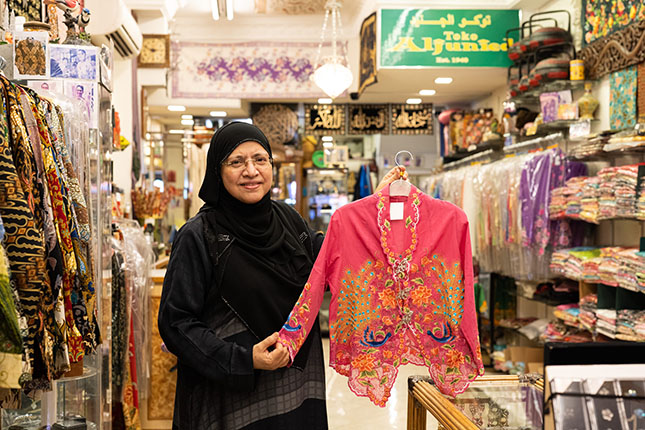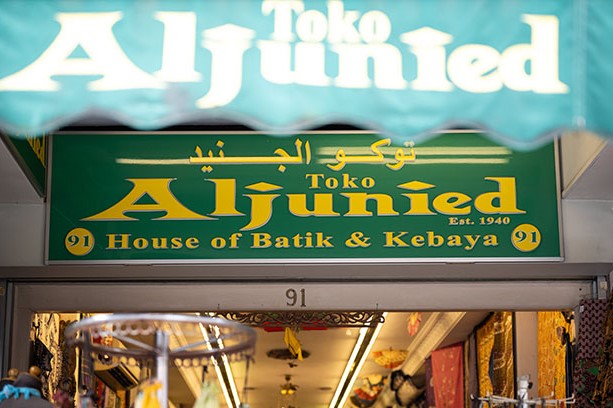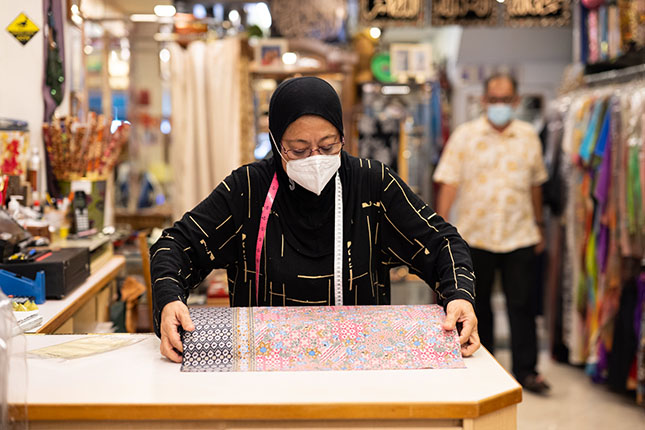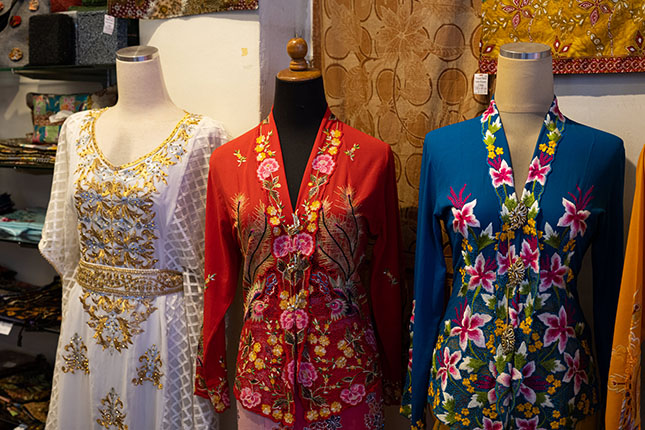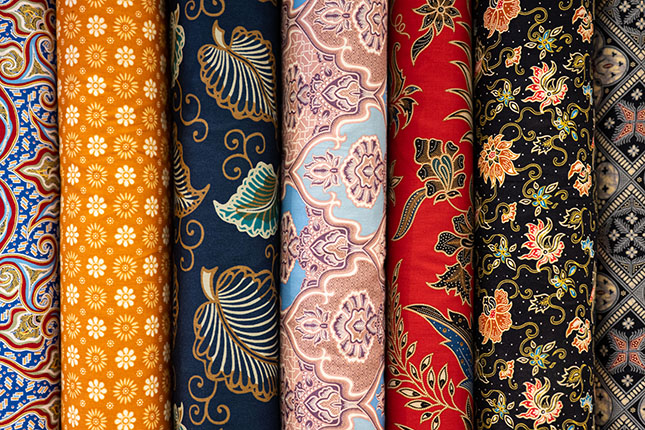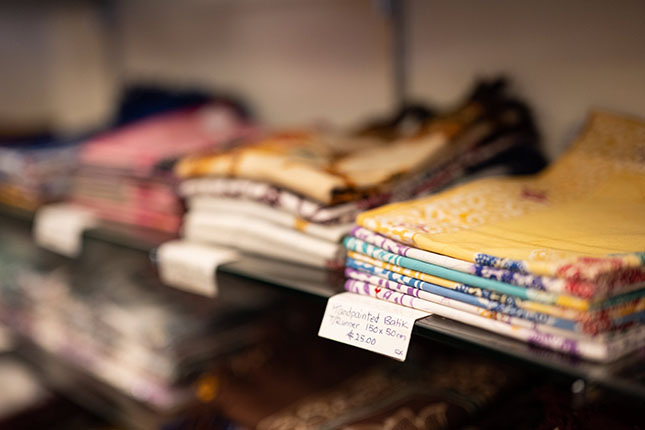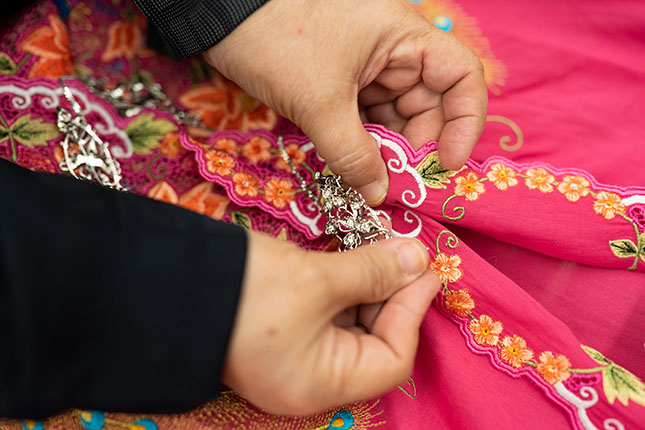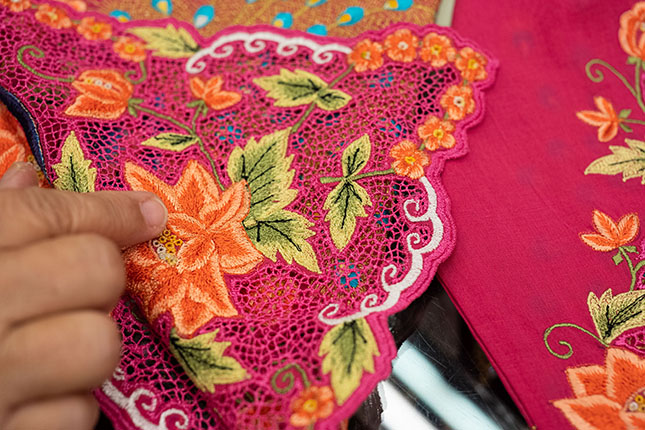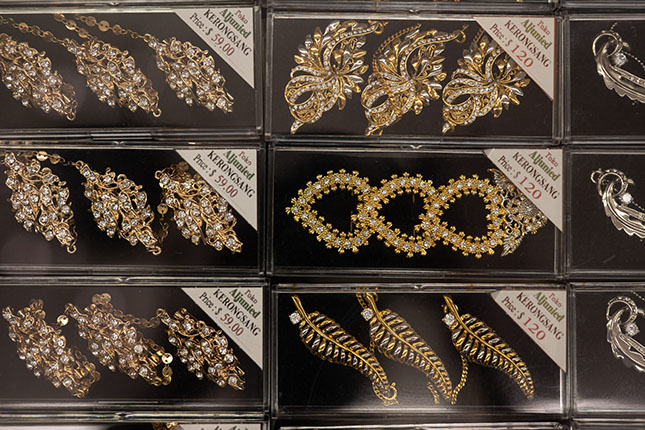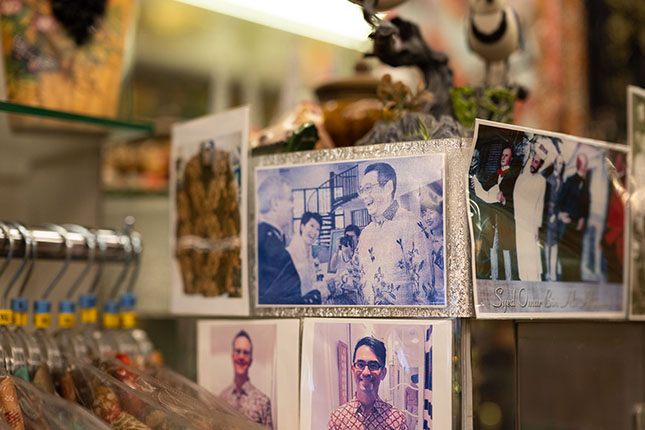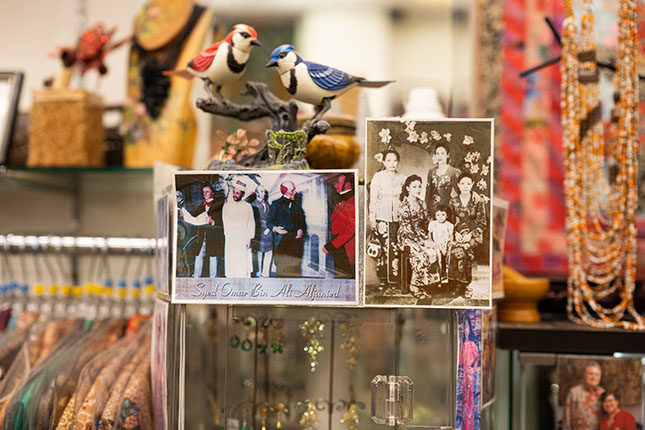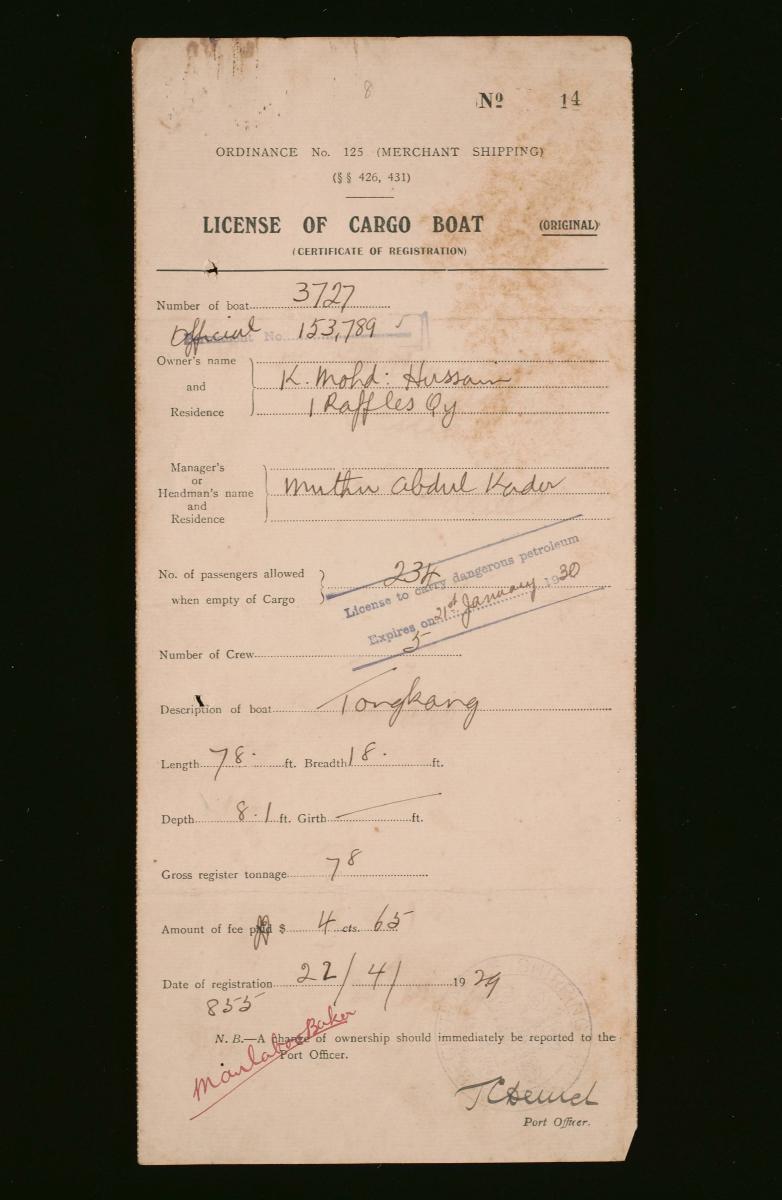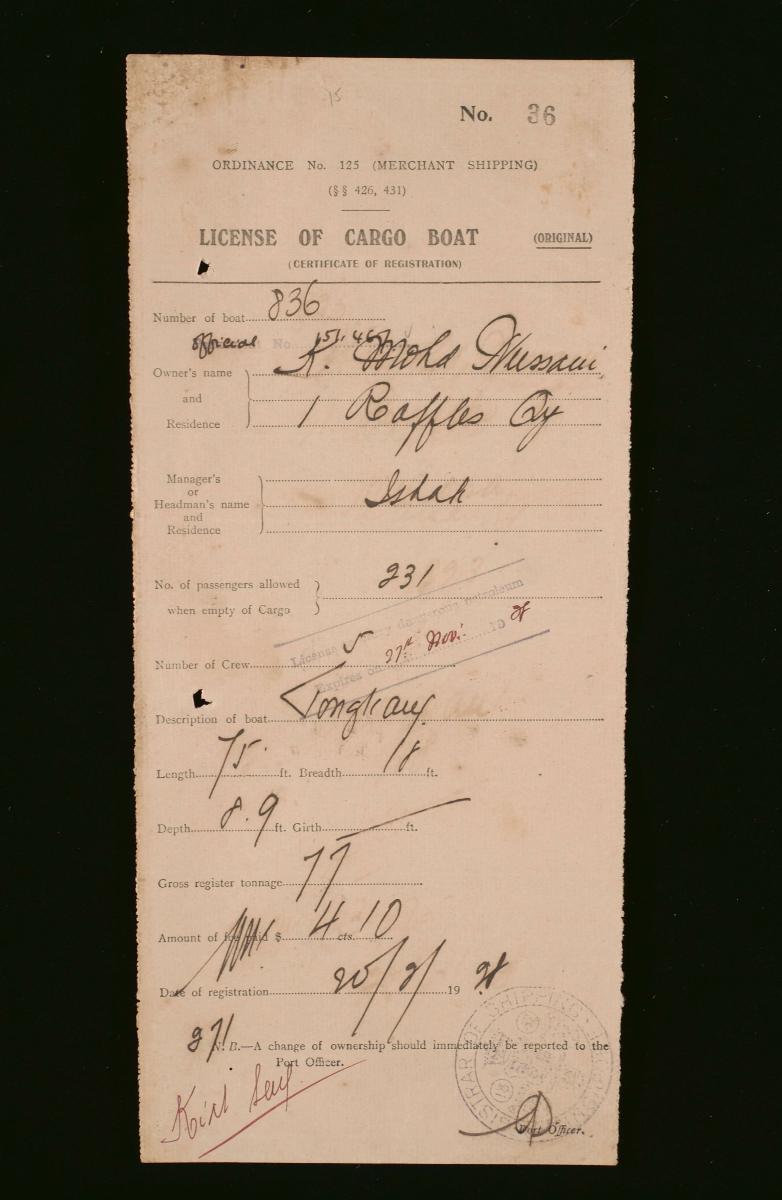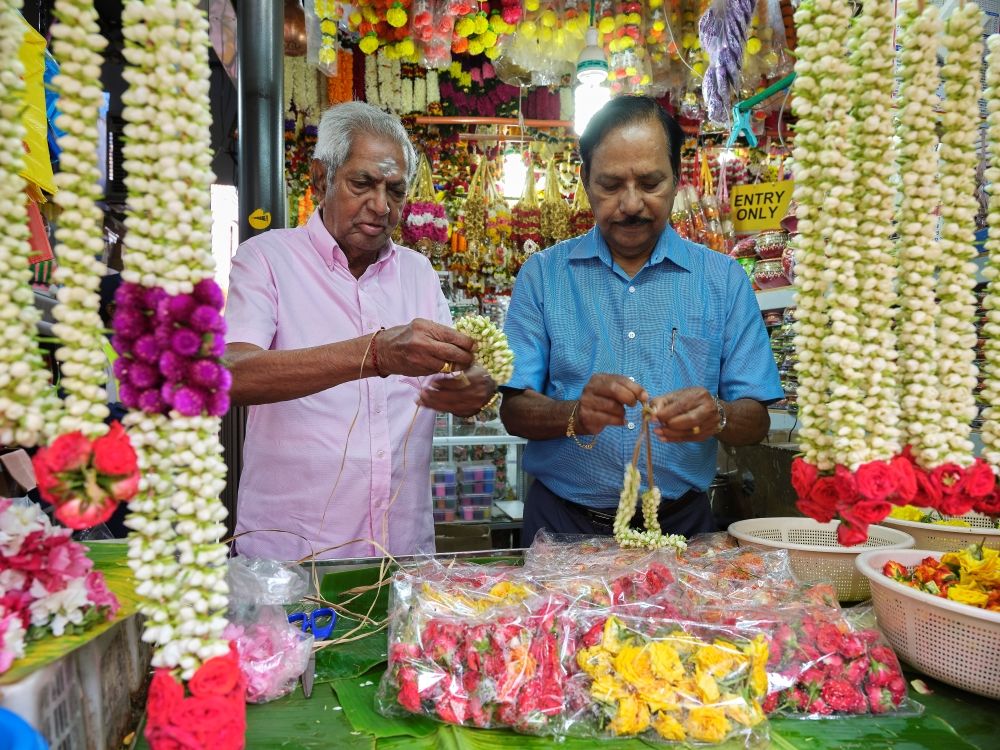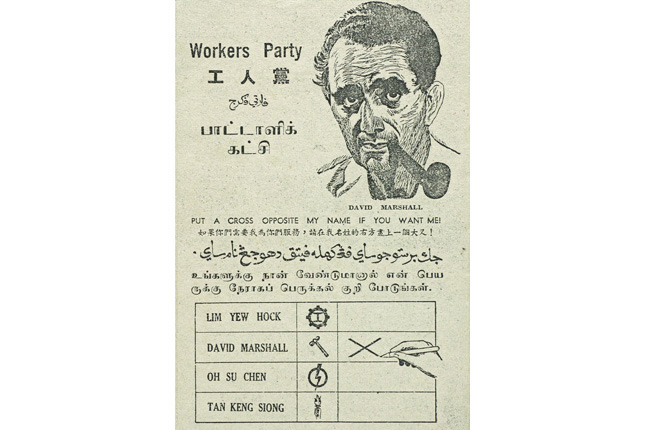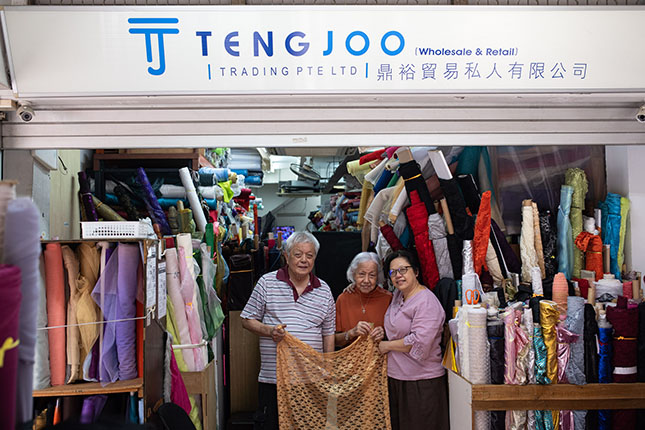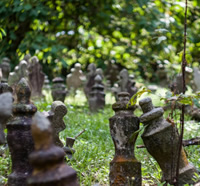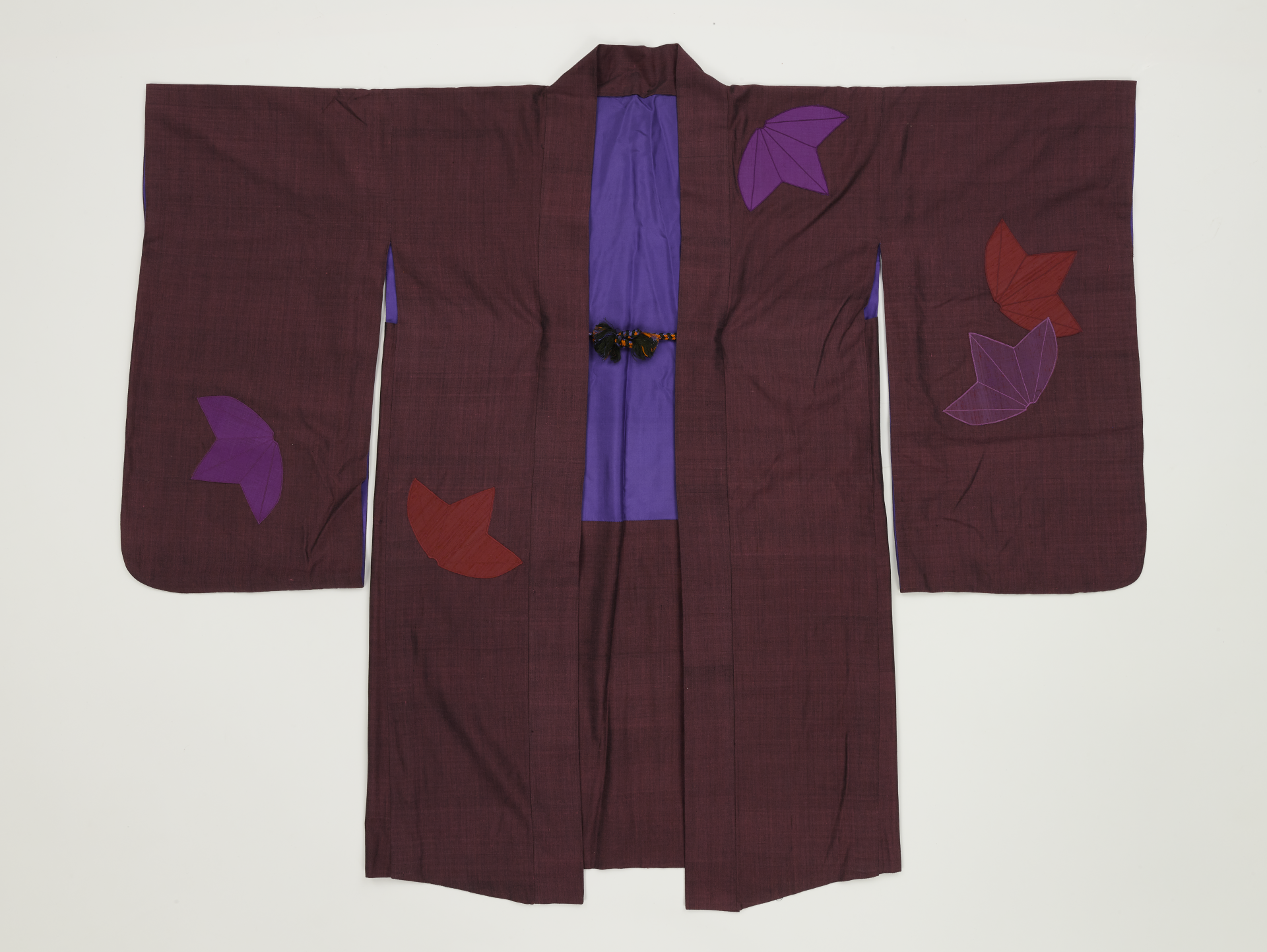Close Ties to Textiles
|
Name of business: |
Toko Aljunied |
|
Name of business in other language: |
معرض الجنيد |
|
Business Location: |
91 Arab Street, Singapore 199787 |
|
Business type: |
Textile |
|
Established: |
1940 |
Toko Aljunied is a textile business that sells batik and traditional clothes such as the sarong kebaya. Although the business was established in 1940, the Aljunied family’s textile legacy harks back to Mr Syed Omar bin Ali Aljunied, a pioneer of modern Singapore who was involved with the textile trade.
Toko Aljunied is tucked cosily in the middle of shophouses along Arab Street. Adorned with green and yellow signs, the shop looks small at first glance. But once you step through the doorway, you would be struck by the feeling that the shop is larger than it lets on. Near the entrance, mannequins stand side-by-side, each donning thce sarong kebaya, which is the combination of the kebaya, the upper garment that resembles a blouse-like tunic, and the sarong, a long flowing one-piece cloth that is wrapped around the waist. No matter where you look, no two fabric designs are identical. The freehand embroidered orchids, chrysanthemums and lotus flowers, blossom across the fabric of the kebayas. Batik designs decorate the sarongs with colourful patterns, ranging from intricate swirls to uniform diamonds.
The interior of the shop is lined with shelves of cotton and silk fabric. Further inside the shop is a wall facing the cashier counter that is covered with photographs. Each picture shows smiling faces of customers, be it a young girl wearing a custom-made sarong kebaya or a couple with matching batik outfits. In the middle of the pictures is a framed black-and-white photograph of Mr Syed Haroon bin Hassan Aljunied – the founder of this established textile business, which has been running for over 80 years.
Ms Zahra Aljunied is the granddaughter of Mr Syed Haroon Aljunied. She currently helps to run the business which belongs to her father, Mr Syed Junied Aljunied. She has much to share about her family’s textiles legacy. Although the business was officially established in 1940, Mr Syed Haroon Aljunied’s shop has been around since the 1930s. First located at 737 North Bridge Road, just opposite the Sultan Mosque, the shophouse was both the premises of the business and the home of the family. “The first floor was the shop and the upper, second floor was where the family lived. And that was where my parents got married and I was born there,” Ms Zahra says.
Toko Aljunied started by selling non-alcoholic perfumes, batik sarong and batik lepas, as well as kain pulikat, a traditional Malay garment in the form of a long, usually chequered designed cloth that men would wear around the waist. The shop might have been the first, or if not, one of the earliest established shops in Singapore selling batik. In those days, batik was sold from house to house and the lady of the house would be given credit to buy her sarong.
From a young age, Ms Zahra’s father and uncle would help out at the shop. They would later open an offshoot business, Aljunied Brothers, that diversified into agarwood-related products. Over the years, Toko Aljunied steadily built its reputation, specialising in batik and traditional clothing like the kebaya. In fact, the mother of Singapore’s founding Prime Minister Lee Kuan Yew had been one of the business’ many customers; the late Madam Chua Jim Neo was a Peranakan and followed the tradition of wearing the sarong kebaya. Many other Peranakans like her trusted Toko Aljunied for its quality materials and beautiful designs. “Whenever they ask where can I get good batik, the people in that generation will equate it to Toko Aljunied. ‘You get good batik from Toko Aljunied’,” Ms Zahra remarks.
Although Mr Syed Haroon Aljunied established Toko Aljunied in 1940, the family’s history with the textile trade goes much further back. His father-in-law’s grandfather, Mr Syed Omar bin Ali Aljunied, was a merchant and philanthropist who contributed to the development of modern Singapore in the early 19th century. “When Syed Omar came here, other than the spice trade, he was involved in textiles,” Ms Zahra says, shedding light on what kind of person her ancestor was.
“Syed Omar had close links with the British at that time. In fact, in some British history books, it was mentioned that Raffles invited him to come from Palembang to Singapore because he was a successful businessman there and the British needed the capital to develop the colony. In Singapore, Syed Omar expanded his business by importing fine white cotton cloth from England and then re-exporting it to batik factories in Indonesia. The textile even had a logo bearing his name – SOA: Syed Omar Aljunied.” Mr Syed Omar Aljunied’s keen business sense and affinity with textiles remain with the Aljunied family today, fuelling the business even after many decades.
Today, Toko Aljunied is still going strong, and continues to find ways to diversify and cater to the requests of customers. The business moved towards selling finely embroidered Nyonya kebaya as fewer members of the Malay and Peranakan communities wore kebayas and batik sarongs for their daily attire, replacing them with western clothes. Today, the embroidered kebayas are worn during special occasions like weddings, new year celebrations, graduation ceremonies, company functions, etc. Hand in hand with the kebayas are the men’s batik shirts which also sell out fast at Toko Aljunied. Made of cotton and silk, these batik shirts are the favourites of many ministers and foreign dignitaries.
Another new product is the batik designed fine cotton fabrics. Besides being used for clothing, the fabrics are also purchased by architects for upholstery and home furnishings. As a result, many architects have become part of Toko Aljunied’s regular customers. The shop also sells souvenirs made from remnants of batik materials such as tissue cases, coasters and bags. More recently, the shop started selling pure Hadrami Sidr honey originating from Yemen.
The Aljunied family is open to trying new ideas that would allow Toko Aljunied to grow. Nevertheless, textiles and batik, which are deeply tied to the family’s legacy, continue to be Toko Aljunied’s mainstays. Ms Zahra hopes that customers will always remember and come to Toko Aljunied whenever they wish to purchase well-made Nyonya kebayas and all things batik.
Interviewed by Noorul Raaha As’art, Sakinah Safiee, and Qistina Athirah Binte Mohamed Isa on 5 June 2022.




